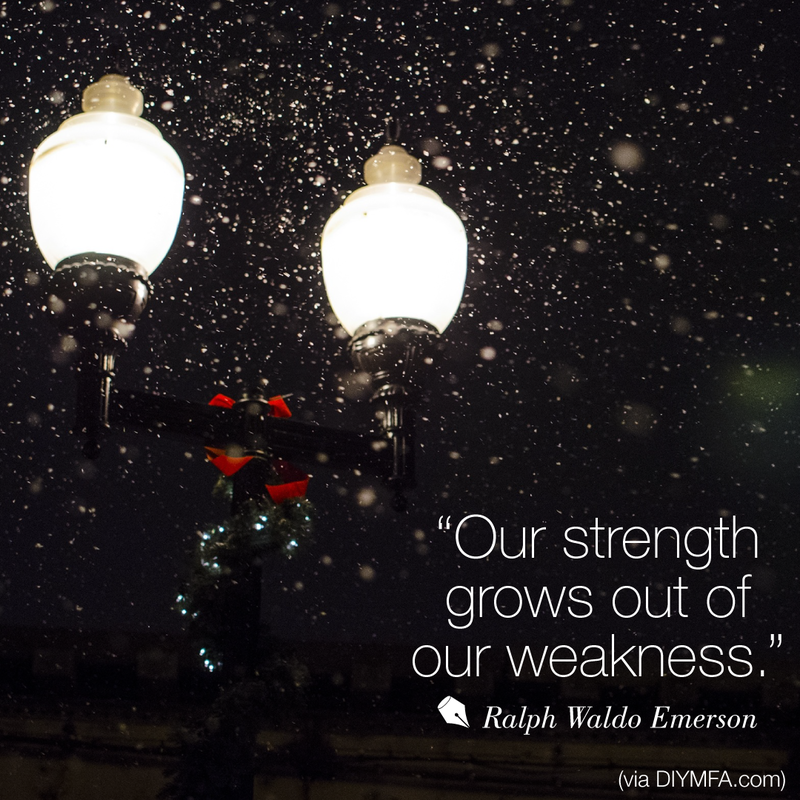

This week, Gabriela from DIY MFA challenged her Street Team members to think about creative myths that keep us from diving in and doing the work of writing. She listed these 5 myths about creativity:
- Creativity is an exclusive club, and you can’t be part of it.
- Creativity is innate–you either have it or you don’t.
- Creativity is driven by chaos, so there’s no way to control it.
- Creativity is all about getting that one “Big Idea.”
- Creativity is focusing on an idea until it’s perfect.
But I know of another myth, one that encompasses all of these and more, one that we all use when we’re too tired or too scared to do the writing (or painting or playing or dancing or singing or whatever your medium is).
Art is hard
This myth… this is what we’re really thinking when we tell ourselves we don’t have what it takes, when we tell ourselves that we’re not good enough, or that we’re too “left-brained” to be creative. We think that the act of creating, whatever it is, it’s going to hurt. We buy into the idea that if we’re going to create something significant, something worthy, that we have to suffer for it. And if it’s easy or if we enjoy it then it’s not really art.
We’ve been fed this narrative our whole lives. But it’s bigger, older than just our generation. The trope of the starving artist was already popular in Puccini’s day. Why do you think La Boheme was such a hit? The artist must suffer and die for the sake of their art. If not, then what good is it really?
It’s ok to enjoy the creative process
Allow me to release you from the thrall of this myth. Art does not have to be hard… Art can, nay it should be drawn from the deepest seat of your pleasure and joy.
That’s not to say that you won’t be challenged by creating, or that you won’t have to practice parts of your craft to improve. But it never has to be hard. You never have to suffer in order for it to be “good.” You can come to the computer or the canvas or the keyboard or the stage joyfully. If you don’t, you have to ask yourself if what you’re trying to achieve is really worth it.
The key is confidence
Perfection is hard. Not making mistakes is hard. Measuring up to someone else’s standards is hard. But these things are not art. They don’t serve art. And they don’t bring us joy in the practice of them. Instead they make us overly cautious and afraid to try new things.
When we’re tentative and nervous and just looking for acceptance, it’s easy to feel like we’ll never measure up to the standards and expectations of the “creative club” we want to join. But if we can talk ourselves over the fear of rejection and criticism and just enjoy the process of learning as we create… That’s where the magic happens!
Stop pretending art is hard. – Amanda Palmer, The Ukulele Anthem
She’s dead right. We have to stop pretending that we’re not ready yet. Dive in. Have fun!



